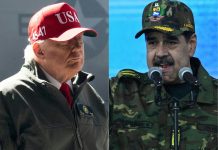The UK on Thursday welcomed a recent decision by the EU to impose sanctions on North Korea, China and Russia under the bloc’s cyber sanctions regime.
The measures were applied against nine individuals and organizations from the three countries and are now in force in the UK until the end of the transition period as Britain leaves the EU, after which they will continue under the autonomous UK Cyber Sanctions regime.
“Today’s actions will raise the cost on malicious cyber activity by state and non-state actors and will help counter future hostile activity in cyberspace. The UK was at the forefront of efforts to establish the EU Cyber Sanctions regime and we will continue to implement this regime after the end of the Transition Period,” said British Foreign Secretary Dominic Raab.
In a statement, the British Foreign Office said the cyber sanctions would impose “meaningful costs for the reckless behaviour of state and non-state actors through asset freezes and travel bans within the EU, including the UK.”
The UK’s autonomous cyber sanctions regime will allow it to impose travel bans and asset freezes on individuals and organizations.
Meanwhile, Raab also commented on the disqualification of 12 opposition candidates from the upcoming Hong Kong Legislative Council elections.
“I condemn the decision to disqualify opposition candidates from standing in Hong Kong’s Legislative Council elections,” he said.
“It is clear they have been disqualified because of their political views, undermining the integrity of ‘One Country, Two Systems’ and the rights and freedoms guaranteed in the Joint Declaration and Hong Kong’s Basic Law,” he said.
“The Hong Kong authorities must uphold their commitments to the people of Hong Kong.”




